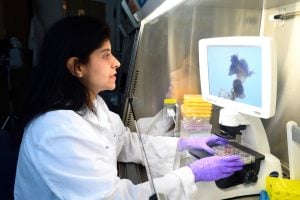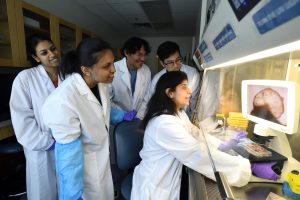Annie Kathuria’s lab is spearheading breakthroughs in organoid tissue engineering, leveraging the regenerative capacities of pluripotent stem cells to craft highly detailed 3D tissue models or “organoids.” These constructs mirror the complex micro-architecture of actual organs, standing as a revolutionary instrument in biomedical research. The focal point of her lab’s endeavor is the development of cerebral, cortical spheroids, retinal, liver, and lung organoids. They are offering a deeper dive into the molecular foundations of several neurological and rare disorders such as Autism, Schizophrenia, and Alzheimer’s disease. This pivotal work facilitates a more granulated understanding of these ailments, paving the avenue toward targeted treatment options. In conjunction with this, the lab utilizes a multi-modal research paradigm that integrates multi-electrode arrays and high-throughput imaging, fostering an environment conducive to high-throughput drug and toxicological screening. This approach holds substantial promise not just in the pharmaceutical realm but extends to food nutrition analysis and toxicological screening, opening avenues for collaboration with industries keen on exploring the effects of various substances at a cellular level, thus broadening the horizon of potential applications and partnerships.


